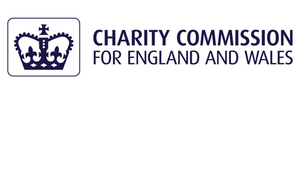Geovation welcomes latest set of data innovators
As Geovation marks its 10th anniversary, HM Land Registry and Ordnance Survey are delighted to announce the latest innovative start-up companies to join the Geovation Accelerator programme in London. The Geovation Accelerator programme will provide these promising new tech start-ups with focused support, access to quality location and property data and resources to help them develop and thrive.
The Clerkenwell based Accelerator programme has produced a steady pipeline of success since launching in 2015. Eighty-four start-ups have been helped to grow, which has seen them create more than 200 new jobs and raise £23.3 million in investment funding.
The latest Geovation cohort to be supported by HMLR and OS:
- Veya: making important information available to homebuyers earlier in the conveyancing process
- Crowdhaus: modernising the property search market by providing the 21st century with ‘For Sale’ Smart Signs
- SociAbility: the SociAbility mobile app allows users to quickly and easily find detailed and reliable accessibility information for local social venues and shops
- Lairvue Ltd: a property viewing company providing a comprehensive 7 day viewing service to make sure property viewings do not get cancelled, postponed or missed
- Earthscope: finds, forecasts and assesses wildfires by harnessing AI, satellite images and the weather
- Hammer-Flights: provides an adaptive flight automation platform for drone service providers and in-house drone programs to collect quick and precise data
- Atmo: provides air quality monitoring to heavy industry to minimise exposure to personnel
Andrew Trigg, Chief Geospatial & Data Officer at HM Land Registry says:
We couldn’t be more excited to welcome the latest cohort of PropTech innovators, and help them apply our data to solving important social and commercial challenges. 10 years into the programme, we’re still seeing ever more novel and exciting ideas with each new intake.
Head of Geovation, Alex Wrottesley, adds:
This month Geovation celebrates its tenth anniversary. It has been an incredible 10 years that has seen this Ordnance Survey initiative grow and establish itself within the start-up and entrepreneurial community. It’s been a real team effort and we’re now looking forward to the next 10 years and helping even more start-ups launch and prosper.
Following Geovation’s recent expansion into Scotland, Ordnance Survey (OS) and Registers of Scotland (RoS) have also welcomed the first group of companies participating in the inaugural Geovation Scotland Accelerator programme:
- Folarity: ‘Forest Planner’ is a software as a service (SAAS) platform consisting of a website and mobile apps that will help forest managers plan and monitor their woodlands
- Walks and Waterfalls: a treasure app to help users locate Scotland’s waterfalls, wild swimming spots, undiscovered walks and heritage sites
- Myfaktor: a community-driven, property factoring platform to equip people living in residential blocks and developments with tools to reduce maintenance costs through optional self-management
About Geovation
Geovation is an initiative dedicated to supporting open innovation and collaboration using location and property data. Location is at the heart of many of the most successful digital products and services. Land and property is the foundation of our national economy. The Geovation Accelerator programme is delivered and funded jointly by Ordnance Survey and HM Land Registry.
About HM Land Registry
HM Land Registry is a government department created in 1862. It operates as an executive agency and a trading fund and its running costs are covered by the fees paid by the users of its services. Its ambition is to become the world’s leading land registry for speed, simplicity and an open approach to data.
HM Land Registry safeguards land and property ownership worth in excess of £7 trillion, including over £1 trillion of mortgages. The Land Register contains more than 25 million titles showing evidence of ownership for some 87% of the land mass of England and Wales.
